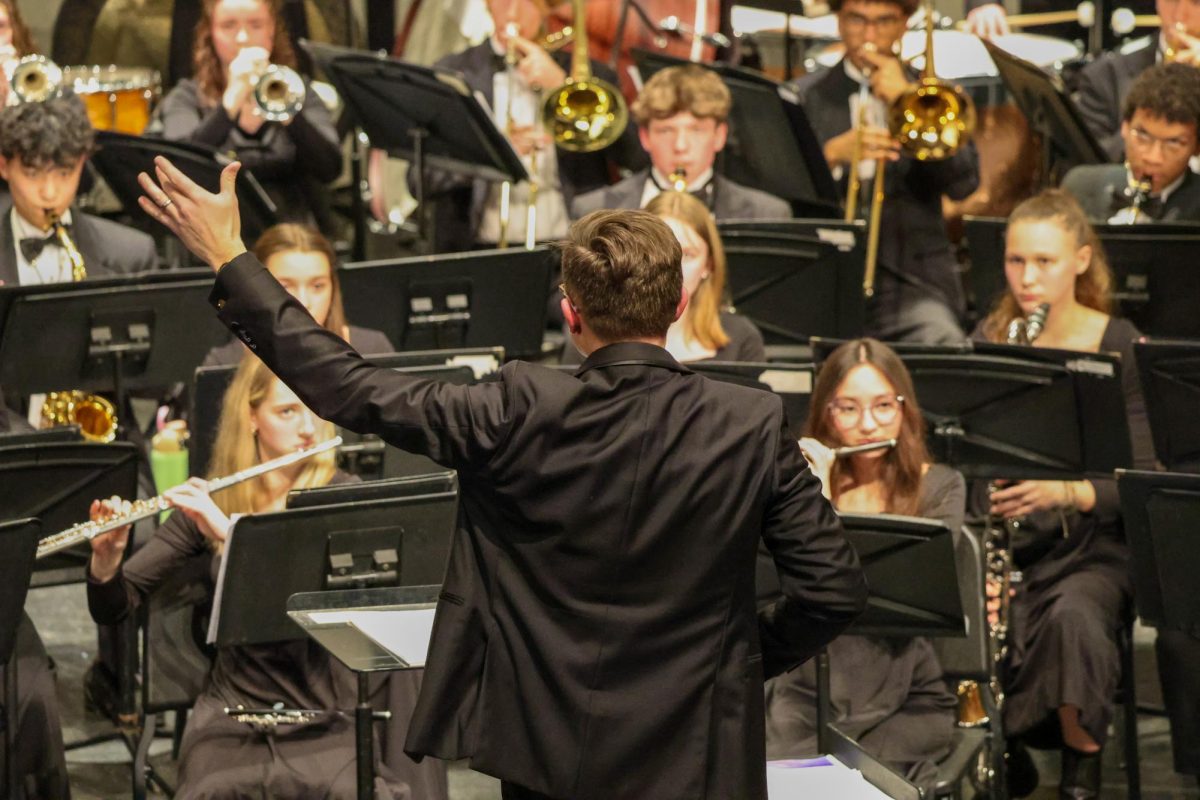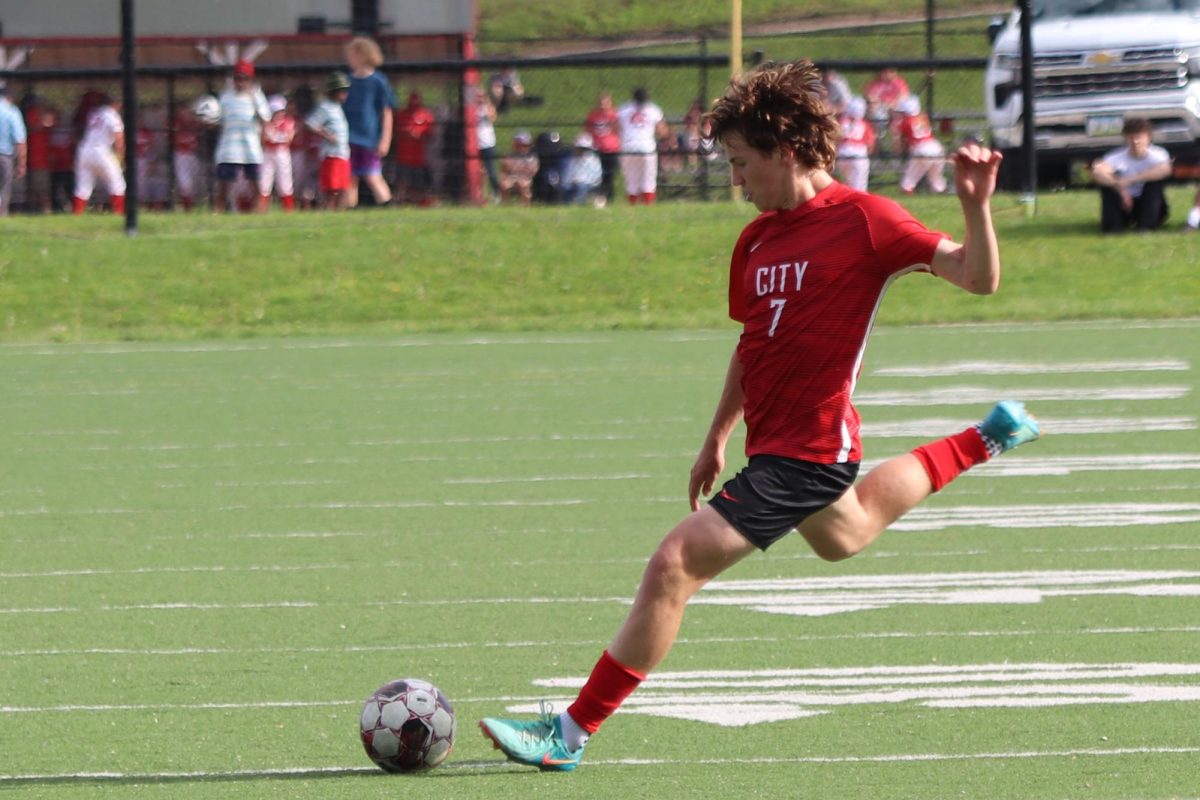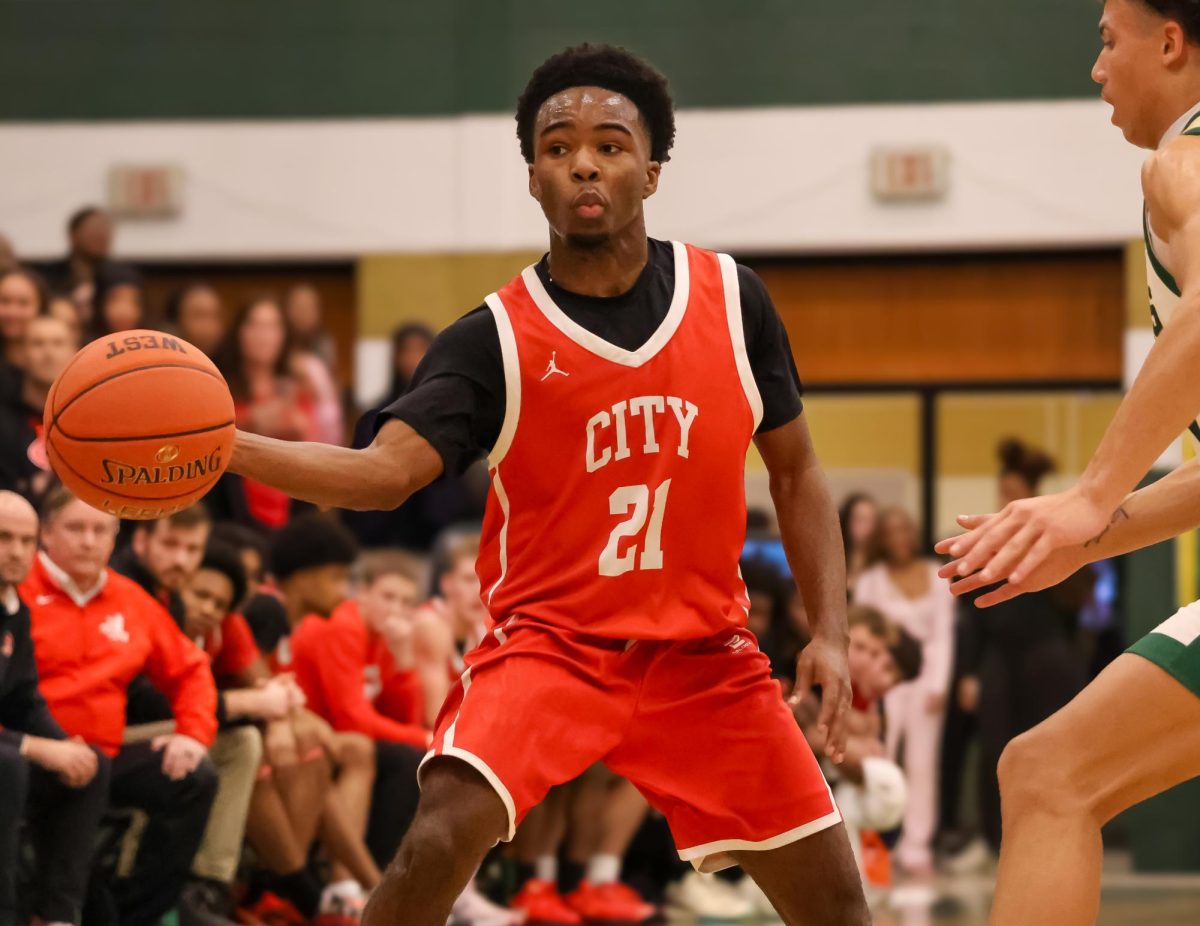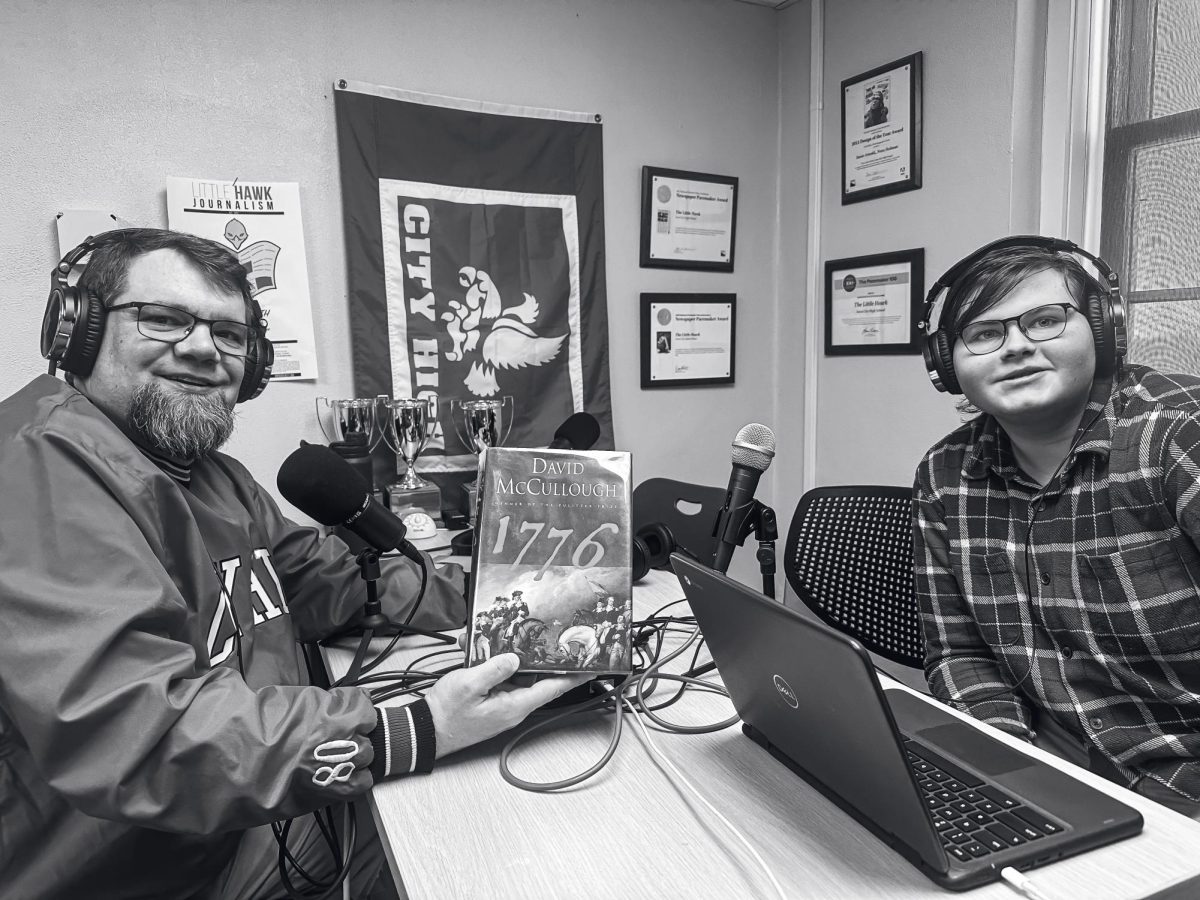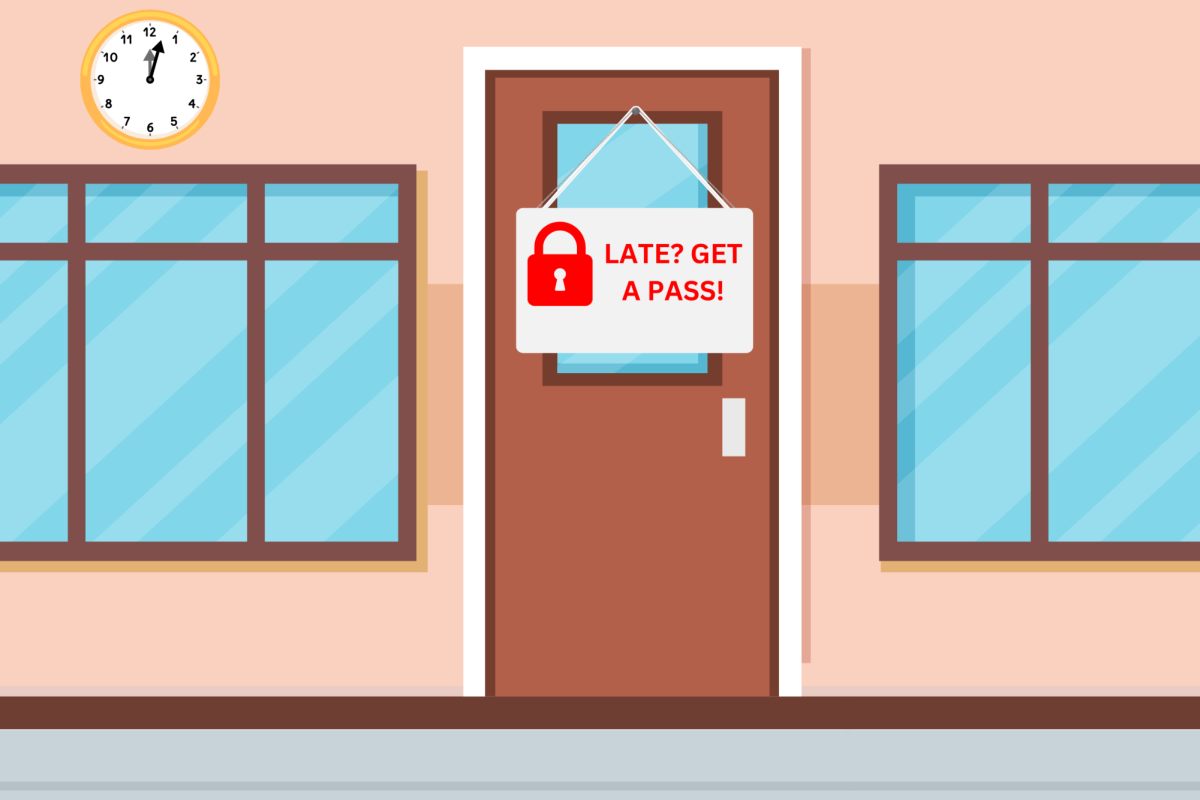Walking around the City High halls, students can see that classroom doors are locked and closed. The new policy has caught the attention of students who are accustomed to having unfettered access to their classrooms.
“We don’t have a member of our team at City that serves on the District Safety Committee, but my understanding is that the District Safety Committee considered recommendations of experts for schools from a school safety standpoint,” Principal John Bacon said, “and my understanding is that the recommendation was made because of an analysis of you know, heavy topic, but of school shooter situations, active shooter situations. Apparently [that analysis] has shown that, in many cases, when doors have been shut and locked, the offender simply keeps going, because their objective is to do damage, as much damage as possible, in as short of time as possible, because they know that the clock is ticking. So what the research shows is that, if a door is shut and locked when they get to it, more likely than not, they will simply keep going as opposed to trying to bust through that door… You know, based upon that research, the district safety committee is recommending that when class is in session that doors be shut and locked.”
Principal Bacon explained that, while City will obviously comply with the District Safety Committee’s recommendations, it is still working through unintended consequences of the policy, like the difficulty City is having regulating classroom temperatures. He continues to welcome feedback from faculty, staff, and students.
“I think at any time people can provide feedback for sure. I think, in this case, you know, I would probably need to funnel any feedback that comes my way to the district safety committee to see if they want to because really, we need to be in line. I will tell you, [that] I don’t think we’ve reached 100% implementation of this initiative yet. We have a few limiting factors that we’ve been wrestling with, including like we have a few classrooms where we’re still battling some temperature control issues. And teachers feel that when the door gets shut, it becomes just stifling and it’s not working,” Principal Bacon said. “So until some of those things are addressed. I’m not trying to, you know, demand 100% because nobody wants to see kids roasting in a classroom.”
Bacon expressed concerns regarding the inconvenience of not being able to easily slip in and out of classrooms during random check-ins.
“I think there are definite drawbacks. As an administrator, it’s very important to me to try to get into classrooms and spend time just doing walkthroughs and checking in with kids and teachers, and seeing what’s going on in the classroom. It’s a very important part, I think, of the job. You know, I really strive to do that. I’m sure I should do it more, and I try, but I will say I don’t love the locked doors for that reason, because it’s frankly like I, of course, have the key, but it’s awkward. I feel like I’m interrupting more so than when I can just discreetly slip into a classroom,” Bacon said. “I don’t love it myself, but I also understand the recommendation and I think it’s pretty hard to argue with. Just as much as I love the convenience of not having to mess with it, it’s hard for me to say that that is more important than a research-based safety thing. I feel like it’s an inconvenience that, until somebody presents more compelling data, I’d feel pretty bad if we did not have that step implemented just because of a convenience reason. You want to make sure you’re doing the little things to make sure everyone is as safe as possible. I’ve accepted the recommendation and I’m trusting that people [that] are making the recommendation have the best interest of kids and everybody’s safety in mind.”
Assistant Principal Phillip Hansen explained what the district is trying to achieve
“What we are trying to achieve is the safest environment. I, myself, and Mr. Bacon, we’re not experts when it comes to safety. We rely on collaboration with our facilities, team collaboration with local law enforcement, and again, based on their advice right now, it is best practice to have those doors locked,” Hansen said.
Assistant Principal Hansen also talked about how the policy will affect procedures during emergencies.
“Classroom doors being locked actually firms up some of those [safety procedures]. For example, when we do have a fire alarm or something, and we are leaving the building, classroom doors are supposed to be shut just to help prevent the spread of the fire,” Hansen said. “And with our new tardy policy, it lines up nicely that the door is shut and locked so students must get a pass as opposed to just walking in without one. So there isn’t necessarily a safety concern in terms of having [the new policy].”
Principal Bacon described future implementations that may be coming to City High to help make everyone safer.
“My understanding is that at some point here, we’re going to get an additional kind of a little construction project that will put the double sets of doors in at our entrance points. Unwanted people entering the school is difficult to prevent 100%, so I think the double door system would be a big step in the right direction and I think we’re just in the plans,” Bacon said. “So I think in relatively short order, it would be our turn to have to have that type of entrance created. I think that will be a big step in the right direction.”








